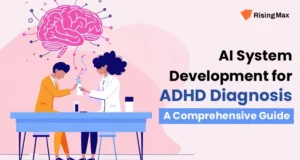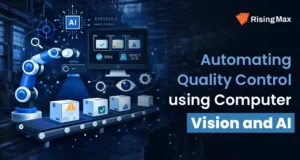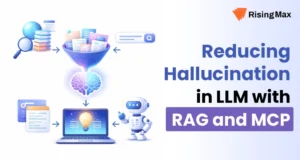AI is transforming business experiences in unprecedented ways. It is revolutionizing assistive technology with just one prompt, speeding up management tasks, and bringing powerful capabilities to non-technical users.

Many reputable businesses leverage AI in their procurement tasks to revolutionize their work.
- AI in procurement is a groundbreaking technology that enables companies to tackle challenges more effectively and drive excellent results.
- It includes using advanced technologies and algorithms that automate tasks traditionally carried out by humans.
- Irrefutably, procurement is a complex process that implicates navigating dynamic market conditions, managing vast amounts of data, optimizing supplier relationships, and mitigating risks.
The objective of AI in procurement is to augment and automate numerous aspects of business operations, enabling companies to develop better-informed decisions, drive operational excellence, and optimize resource allocation.
Let’s dig deeper into how AI works and optimizes procurement processes for better opportunities.
AI Technologies in Procurement
The modern world relies on AI for better opportunities. AI development has enabled various industries to transform the way they function. Though it has had a slow uptake within the procurement sector, many players have realized its potential.
Below are common technologies, apart from AI, used often in procurement:
- Machine Learning (ML): It uses algorithms that detect and use patterns for decision-making or predictions.
- NLP: The algorithms interpret, transform, and create human language.
- Robotic Process Automation (RPA): Such algorithms mimic human actions to decrease repetition, leading to simple tasks.
All forms of AI include algorithms and rules defining how to solve a specific problem. An individual can calculate algorithms with good mathematics skills. However, the work of algorithms is invisible to the human eye. Experts can program or re-program it to solve problems within software surroundings.
While RPA offers several opportunities for procurement to enhance process efficiency, AI is still active. Think of RPA as a software robot that mimics human behavior and AI as a simulation of human intelligence.
Enhance Your Procurement Strategy with AI Expertise!
Revolutionize your procurement approach with our tailored AI driven services. Harness cutting-edge technologies to elevate decision-making and achieve procurement excellence.
Ways AI Can Transform Procurement
With the support of AI, you can augment your procurement process. Here are some beneficial ways of AI transforming it.
Automate Tasks
AI delivers a personalized customer experience by automating P2P procedures and making quick, agile decisions for procurement. It streamlines routine tasks, such as invoice processing and data analysis. For instance, AI can track orders’ status and notify you when shipments run slow or stock runs out. This enables procurement to switch to a new supplier to avoid business disruptions. Also, it automates daily tasks, such as matching up documents and coding purchase requisitions.
Analyse Spending for Smart Decisions
AI provides insights for better supplier selection and cost reduction. It automatically organizes spending, generates spending reports, and resolves errors. It hands procurement leaders the information they need to build smarter strategic decisions. AI simplifies services spend management, defines scope and duration, and estimates the appropriate rates. Also, it tells you which skill sets to expect for a provided rate.
Contract Data Extraction
Like invoice data extraction, contract data extraction permits organizations to upload large contracts in varying electronic forms and drag key information. Using NLP to extract information and terms is helpful in compliance for those without structured contract databases and accelerates the transitions to systems. AI identifies and manages risks hassle-free.
Manage Risks
AI plays a significant role in risk management by allowing AI-enabled risk assessment and mitigation strategies. It helps teams manage risks and execute mitigation strategies by detecting anomalies and patterns. AI techniques are helpful for fraud prevention and detection, diminishing the financial and reputational risks associated with procurement’s fraudulent activities. With the help of AI algorithms, you can analyze vast amounts of data to recognize potential risks, such as compliance violations, supplier performance issues, or market volatility.
Enhance Supplier Selection and Management
AI alters supplier selection and management methods by automating supplier profiling and evaluation. AI algorithms analyze vast supplier data, including performance metrics, financial information, and compliance records. Sourcing is easy to target because AI matches specific procurement requirements with supplier qualifications and capabilities. It helps professionals make informed decisions while assessing risks, ensuring compliance, and selecting suppliers.
Advantages of AI in Procurement
You can improve your sales and enjoy great results by leveraging AI technologies. Not just this, but you can also avail yourself of multiple benefits, as discussed below.
Flawless Decision-Making
AI uncovers meaningful insights and patterns from data through advanced data interpretation and predictive analysis in procurement decision-making. It enhances the quality of buying decisions and fosters strategic sourcing, efficient spending management, and risk mitigation.
Umpteen New Possibilities
AI’s ability to process and evaluate datasets is useful to identify inherent opportunities. It includes finding cost-saving opportunities, spotting market trends, or recognizing underutilized suppliers.
Smooth Business Operations
AI is transforming, accelerating procurement operations and aligns strategies with overarching business goals through smart analytics and process automation, encouraging synergy and operational adequacy across the business. Further, the technology mimics human actions, saving time and effort.
Easy Tasks Automation
AI excels at automating repetitive tasks that traditionally consume substantial resources and time. It automates tasks like buying order creation, invoice processing, or contract management, diminishing human error and boosting process efficiency. You can find these daily tasks that you can automate using Automation Discovery.
Efficient Time Management
AI can free up the procurement team’s time by eradicating repetitive tasks by automating them. It enables professionals to focus on other tasks while emphasizing strategic aspects of procurement like procurement planning, strategic sourcing, or supplier relationship management, resulting in overall productivity.
Right Potential Suppliers Identification
AI leverages extensive external data to evaluate new suppliers. As machine learning algorithms analyze supplier data based on reliability, cost, and delivery times, they help businesses find the appropriate suppliers for their requirements.
Long-term Supplier Relationships
Technology has autonomous power in the name of AI. It enhances supplier relationships by promoting data-driven interactions. Suppliers can get valuable insights with the help of predictive analysis that can forecast NLP and supplier performance. AI allows them to align with your business needs, enhancing the supplier-business relationship.
AI and Procurement: Future Possibilities and Potential Impact
It is essential to realize AI potential, though its advancements have already shown great promise in transforming procurement processes. As technology continues to evolve rapidly, this sector has numerous possibilities for the future of AI.
AI significantly impacts the area of predictive analytics. By possessing vast amounts of data, AI algorithms analyze historical buying patterns and market trends to foretell future demand appropriately. This ability helps organizations optimize inventory levels, enhance supply chain efficiency, and diminish costs.
As discussed above, the importance of NLP in procurement systems is eternal. With the help of NLP, machines understand and interpret human language, enabling buyers to interact with systems using voice commands or conversational interfaces. This refinement could streamline procurement workflows by eradicating manual data entry tasks and boosting user experience.
In addition, machine learning algorithms continuously recall past experiences and adapt decision-making processes accordingly. AI-powered systems are becoming increasingly efficient as they accumulate data relevant to supplier performance, pricing trends, market conditions, and more.
Further, there is a potential for collaborative platforms powered by AI that connect multiple buyers and suppliers across industries. These platforms could facilitate better stakeholder communication while allowing real-time price monitoring and negotiation support.
Though possibilities are intriguing, it is crucial to acknowledge that incorporating AI into procurement processes comes with challenges. Ergo, addressing data quality issues is important to generate accurate insights from large datasets.
Our sourcing and procurement services grow profits, mitigate risk, and transform spend management.
Best Practices for Enforcing Procurement AI
AI procurement holds immense potential to improve decision-making, efficiency, and performance. Successful implementation needs careful planning, emphasizing real value, and thoughtful execution. Businesses succeed with the right planning, flexibility, and funding.
Learn about the best practices that lead to a successful AI implementation journey in procurement for your business.
Define Clear Goals and Use Cases
AI significantly impacts the areas you must identify, such as specific pain points, opportunities, or challenges. Whether it automates invoice processing, enhances spend analysis, or optimizes supplier selection, clearly defined use cases greatly help implement AI strategy and ensure focused outcomes.
Improve Cross-Functional Collaboration
Procurement AI implementation includes key stakeholders from IT, finance, and other relevant departments to persuade cross-functional collaboration. This collaboration ensures shared goals, a holistic approach to implementation, and alignment. Further, you must encourage knowledge sharing, open communication, and involvement in the whole process.
Assure of High-quality Data
Ensuring high-quality data is essential to attain meaningful insights. Data fuels the power of AI algorithms. So, cleanse, normalize, and endorse your data to eradicate inconsistencies and errors. Investing in data governance practices is essential to maintain data security, compliance, and integrity. AI is good as the data it learns from.
Begin with Small Pilot Projects
Select use cases having the potential for measurable impact and quick wins. This approach enables you to test AI solutions and assess their performance. Piloting helps ensure buy-in for broader adoption and builds confidence among stakeholders and
Alliance with AI Solution Providers
Engage with vendors who are specialists in procurement AU and have deep domain knowledge. Try to leverage their expertise in choosing the right AI technologies, providing ongoing training and support, and customizing solutions to your needs.
Emphasize Change Management
You must communicate the benefits of procurement AI to stakeholders and address any resistance or concerns. Providing upskilling and training opportunities is better to ensure procurement professionals are comfortable working with popular ai tools and understand their value. It improves a culture that embraces AI and delegates users to leverage its capabilities.
Scrutinize, Evaluate, and Iterate
By monitoring and assessing the performance of your AI systems, collect feedback from stakeholders and users to recognize areas for improvement. Thus, iterate and refine your AI solutions according to gained insights from real-world usage and daily assess the effect of AI implementation on key performance metrics to measure success.
Stay Ethical and Deferent
You must learn to ensure authenticity and transparency in AI decision-making methods. Target to lower biases, secure data privacy, and audit AI models for fairness and accuracy.
Companies can navigate the complexities of procurement AI implementation and unlock their potential for innovation by following these best practices.
Wrapping Up!
Cost optimization, efficiency, and strategic decision-making are paramount since AI proves to be a game-changer in the procurement world.
Exploring AI’s vast potential and transformative impact is imperative in the procurement sector. AI implementation with a comprehensive strategy involves stakeholders, fosters continuous learning and enhancement of the culture, and requires careful consideration.
Ready to rein in the potential of AI in procurement? Our RisingMax specialists will help you revolutionize your procurement business by unlocking the transformative power of AI. Get in touch with us today!













